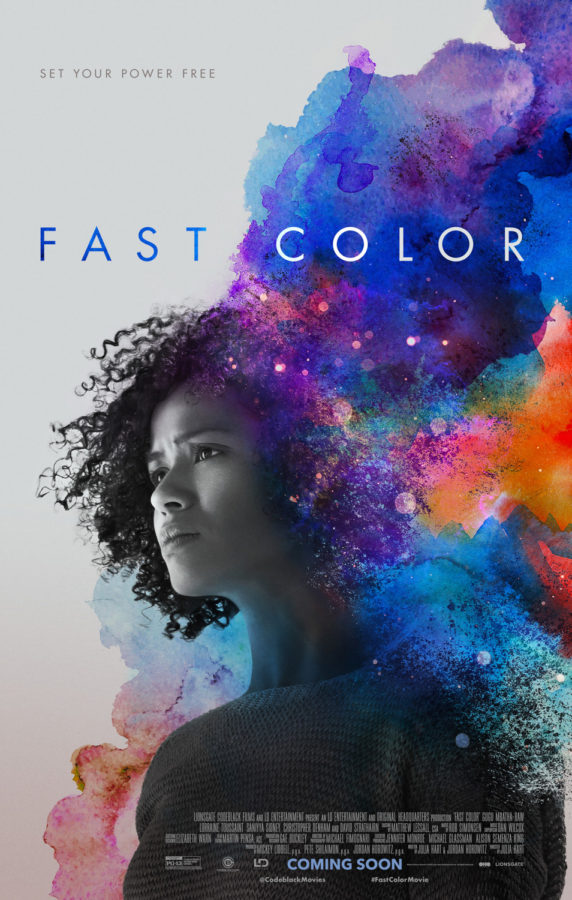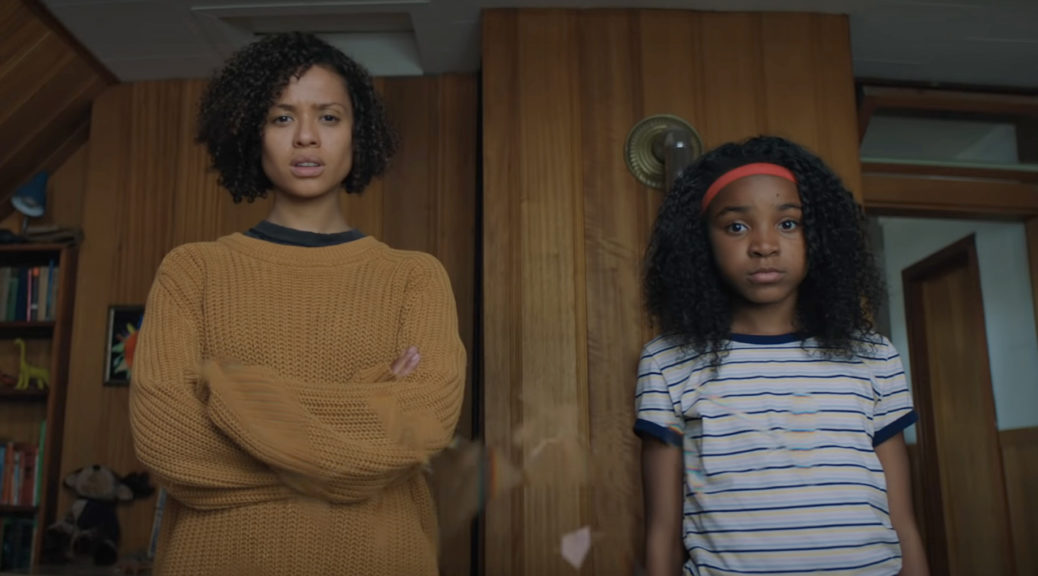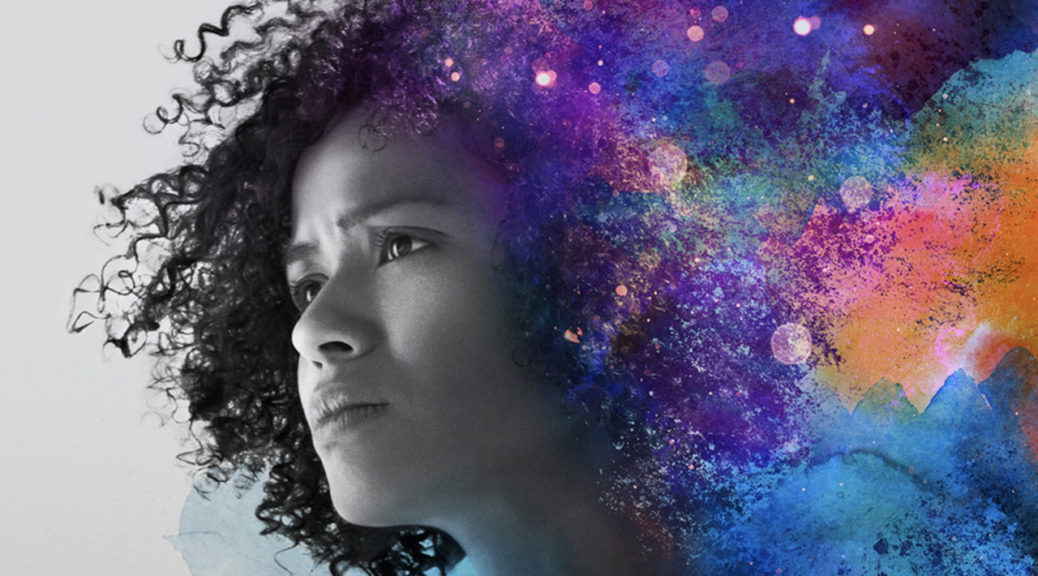I first read Stargirl by Jerry Spinelli when I was in middle school. I remember loving it. When Disney+ announced that they would be adding a Stargirl movie to their lineup, I decided to re-read it. I initially couldn’t remember what intrigued me so much about this book, but as I read on, I remembered. Spinelli created something beautiful out of what could be any ordinary high school setting. The story is told from the perspective of a 16 year old, Leo, who is a perfectly normal kid. He observes the mannerisms of a new student in their school, who goes by the name “Stargirl.” I can’t put into words what a refreshing, beautiful, inspiring soul this Stargirl turns out to be.
Continue reading Pandemic Picks: StargirlTag Archives: Julia Hart
The Other Voices: Fast Color
I’m a sucker for stories about unrealized potential finally being realized. Any story about someone who thinks they’re not worth anything and then finds out they’re super special – that’s my very favorite kind of story. FAST COLOR is one such story, which is why I’ve chosen to make it my first in my new series on films directed by women and people of color.
Continue reading The Other Voices: Fast Color
Emily Blake writes screenplays with lots of fight scenes. She is a vocal advocate for feminism, polyamory, kink, and sex positivity. She makes most of her money as a script supervisor for film and television, but she also makes cosplays for clients out of her little apartment in Los Angeles.
The Other Voices: On Films Directed by Women and People of Color
When Once Upon a Time in Hollywood came out, there was a lot of Tarantino blowback, which created Tarantino blowback blowback, and before too long, everyone was arguing over whether or not Tarantino is racist and/or sexist once again. Nobody has come to any generally acceptable conclusions, and nobody is going to change Tarantino, so I thought.
OK. What if we all just stop worrying about whether or not Tarantino is a racist or a sexist? What if we just kind of watch his movies or don’t, depending on what you’re into. And instead of arguing about it, what if we all just vowed that as we watch Tarantino films, and Scorsese films, and Spielberg films, and the films of a thousand other genius white cis male directors – what if we also make a conscious effort to watch films by women and people of color? That way, yes, you’re getting your white boy director fix, but you’re also exposing yourself to some voices you didn’t know about before, and helping to support material from artists who have a harder time getting funding for production and marketing.
The truth is, when a director is a woman or a person of color, they are far more likely to hire women and people of color to work on the cast and crew, and that’s good for everyone. And even though statistically, films with diverse casts do better box office numbers, we still suffer under the delusion that only white men really know how to direct. Women and people of color simply don’t get the same level of exposure.
Here’s an example of it at work. It’s a TV staffing example, but an example nonetheless. I LOVE Rick and Morty. OBSESSED with Rick and Morty. Watch Rick and Morty over and over again all day forever. Here’s me at Comic Con in my Rick and Morty coat I made, so you know my bona fides.

But if you listen to the commentary on season 1 episodes, it’s cringeworthy. It’s so BROEY. While Justin Roiland is talking about pretty graphic things he’d like to do to Summer, you also hear stories about using binoculars to watch women walk around on the lot below. You can hear the discomfort in Dan Harmon’s voice in an attempt to convince the listener that they really tried to get women onstaff, but no women happened to be interested. And maybe they did. I don’t know – I wasn’t there. But I do know that most people in the TV writing community like to pull from people they already know, and if you are a guy who graphically describes what you’d like to do to a female cartoon character, you’re unlikely to be the kind of guy with a whole lot of platonic female friends. They probably didn’t personally know a whole lot of women writers who wanted to be in a room like that. I know that if I could be sure that the room was a safe space, I’d LOVE to be on the Rick and Morty writing staff – but would I feel safe there after hearing that commentary? Absolutely not. But fast forward, and sure enough, eventually they found women to write for the show. The point is, they probably didn’t look very hard in the beginning. Sometimes people will ask one woman and say well, we tried. But they don’t actively search – they just look around at the most obvious people around them – and the truth is, because it’s so much harder to get exposure as a woman or a person of color, sometimes YOU HAVE TO SEARCH. It’s not a meritocracy. Cis white men are taken more seriously, whether they deserve it or not. They will always be the most obvious candidates. But they won’t always be the best ones.
So.
I Tweeted my proposal:
Here’s an idea. What if, for every movie by a celebrated cis white male director you consider a genius, you seek out a film by a person of color, or a woman, or a woman of color and watch that too.
— Emily Blake (@TheEmilyBlake) August 7, 2019
And you’d think I’d ask some white dudes to rip their own arms off. They were offended at the idea that I’d ask them to do any work. “But I am enlightened!” They said. “I judge a film by the quality, not the skin color or gender of the person who made it! How dare you suggest otherwise! This is an outrage!” (I am paraphrasing).
They were seriously so mad. I argued at first, hoping I could reach a few, but almost every conversation ended in either a block or a mute, so eventually I just started pre-emptively muting all of them.
Some of them were enraged that I hadn’t told them what to watch, so I decided to follow my own advice and started my own deep dive into films directed by women and people of color. I tweeted out a request to my followers to give me suggestions, and I got back an avalanche of recommendations, both foreign and domestic, and it’s still growing:
I’m going to follow my own advice and deep dive into films directed by women and POC. A quick search has already turned up some very cool sounding movies I’d never heard of. Feel free to throw out recommendations in this thread if you like. Maybe we can all find something.
— Emily Blake (@TheEmilyBlake) August 7, 2019
And that’s what I plan to do next. Once a week, I’m going to watch one film by a woman or person of color, and then I’m going to write up my thoughts about it and tell you where to find it in case you want to join me. Every week, on Monday, you can find my article and the assignment for next week here.

I encourage you to engage if you’d like. You can email me about this here to give me your thoughts on this film or suggest one:
Or comment below. I’d love it is this became a conversation, not just me blabbing on. However, anyone commenting in a negative way about the existence of this column/project overall, or saying anything sexist or racist will automatically be deleted. I’m not having that crap here (TheOtherVoicesATH@gmail.com). But meaningful thoughts? Always welcome.
Hopefully, we can all be introduced to some films we never would have seen otherwise.
We’ll start next week, on Monday, with director Julia Hart’s recent release, FAST COLOR, which you can currently find on Amazon, ITunes, Vudu, Google Play, Redbox, and Fandango.

Emily Blake writes screenplays with lots of fight scenes. She is a vocal advocate for feminism, polyamory, kink, and sex positivity. She makes most of her money as a script supervisor for film and television, but she also makes cosplays for clients out of her little apartment in Los Angeles.



